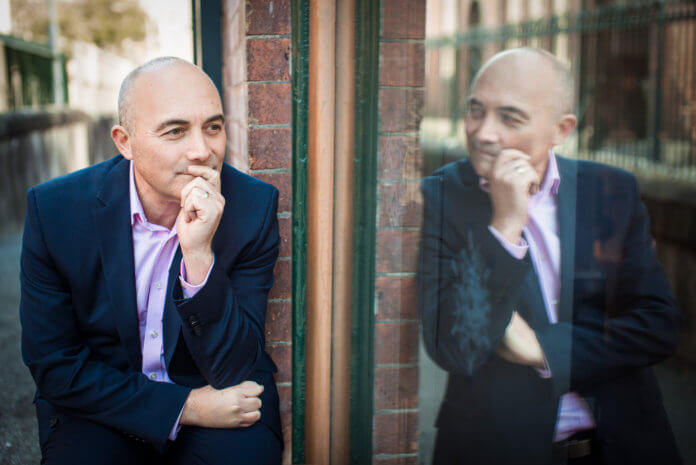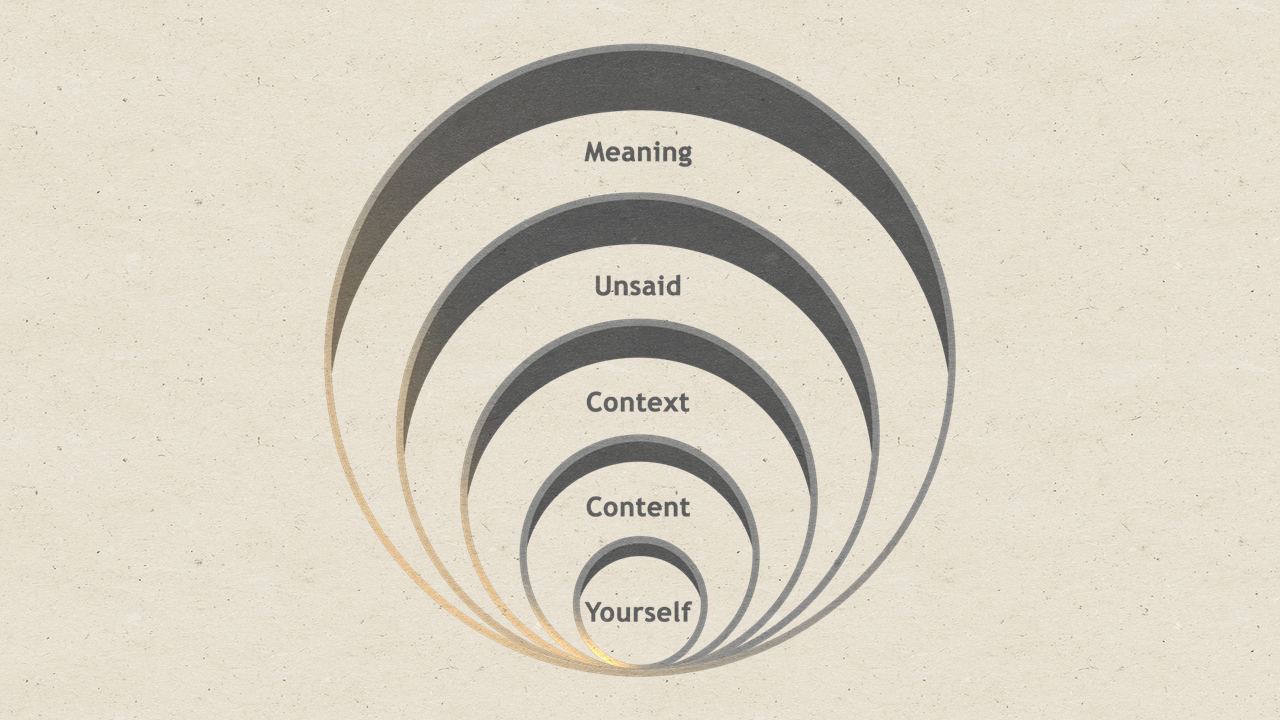
Listening is often thought of as passive, but effective listening goes beyond hearing – it is a skill as important as speaking and a vital part of communication. Beyond the benefits to professional and interpersonal relationships, deep listening also fosters confidence and facilitates clarity. According to Oscar Trimboli, that clarity creates change.
Trimboli, author of Breakthroughs: How to Confront Assumptions and Deep Listening: Impact Beyond Words, has taught, mentored and advised leaders in a diverse range of industries. The son of Italian immigrants, a young Oscar honed his listening and communication skills while playing cards with his classmates from around the world. Now, executives call on Oscar to help them improve their communication skills through the power of listening.
We spoke to Oscar to learn more.

Why do we find listening so difficult?
Most of us haven’t been taught how to listen. One of the great contradictions of communication is that we spend so much time learning how to speak and so little learning how to listen. Many senior executives learn to make an impact through effective public speaking, but only 2 per cent have been taught how to listen. Owners and executives spend much of their day listening, but very few do it well. Poor listening results in missed opportunities.

How can we better understand listening?
Verbal communication has its inherent limitations. We typically only listen to the first thing people say, which is often not what they mean. I speak 125 words per minute but think at nine times that speed, the result is agitation and confusion in my head while I’m trying to communicate. This tells us that what isn’t being said can be more important than what is. Effective listening helps us address the limits of communication, and this understanding strengthens relationships inside and outside of business.
Why do we tend to focus more on speaking than listening?
Listening is the first skill we learn in the womb. At 20 weeks, we know our mother’s voice; at 32 weeks, we can distinguish Beethoven from Bon Jovi. Then we come into the world kicking and screaming, and we learn that making noise is the only way to be noticed. We then spend the rest of our lives trying to get attention instead of listening.
That said, listening differs between cultures. Populations in Asia, Africa, Australian Aboriginal, North and South America, Polynesia and the Middle East value silence much more than we do in the West today. We stigmatise silence. We denigrate it with terms like ‘pregnant pause’. Silence makes us anxious, and we try to fill it. Instead, embracing silence is one of the most powerful tools we can use to improve listening.
However, we often feel it’s more import to be heard, and we are satisfied only when we get our point across. If we fill the silence, then nobody else can, and we’ll ultimately have everyone’s attention. In places such as China, Korea and Japan, silence signifies wisdom, respect and authority. We in the West need to become more comfortable with pauses and silence.

How can we help guide the process and move away from this tendency to fill silences?
Two key phrases can refocus the conversation for both the speaker and the listener: ‘Tell me more’ and ‘What else?’ Those simple phrases can help keep a discussion on track when it starts to stray. Good listeners recognise and respect pauses. If you do that, you’ll create an unhurried atmosphere where neither party feels rushed, and even more importantly, you’ll end up focusing on what matters rather than what is first spoken.

What are your five rules for effective listening?
The rules are straightforward and easy to deploy in any situation. The first rule is preparatory. Clear your mind so you are available to listen.
The second rule involves removing distractions – cell phones, laptops and tablets have no place in deep listening.
The third rule helps with concentration – take 3 deep breaths.
The fourth rule is to drink water – a hydrated mind is a listening mind. The final rule is to listen to what is unsaid to gain a clear and comprehensive understanding of what the speaker wants to say.
That the first thing people say is what they actually mean only happens 11 per cent of the time. Therefore, it’s critical in today’s complex, multigenerational landscape for business owners to master the skill of listening.
In a family-owned company where business challenges and family complications are often linked, how can listening help facilitate resolution?
Listening for context is crucial because context is about patterns and backstories. One of the challenges in multigenerational and familial workplaces is that members of the younger generations often feel they are kept in the dark about traditional beliefs held by those of older generations. However, they have as much responsibility as their elders in looking for ways to foster understanding.
If they ask the right questions and truly listen to the answers, they’ll understand the context and history that informs the decisions made by other generations. For example, cost-control measures may be a direct result of a setback the founder suffered decades earlier. Understanding context is key in family and other businesses, and listening is the road to that understanding.
How can people promote a culture of listening in their businesses?
Switching off anything that buzzes, beeps or vibrates goes a long way toward creating an environment conducive to listening. I once watched a Vice President of one of the world’s largest tech companies pull his phone out, switch it off and stow it in his briefcase before a meeting. That action captured the attention of the room, and the majority of attendees followed suit.
Second, staying hydrated gives your brain the fuel to listen. The brain is only 5 per cent of our body mass, yet it consumes 26 per cent of our blood sugar. Trying to fuel up and hydrate with coffee can have the opposite effect, making people jittery and unable to listen.
Finally, taking three deep breaths before starting a conversation – whether on the phone or face to face – helps to centre you and makes everyone more receptive to new information.
These three simple steps can immediately improve listening productivity tremendously. People are often pleasantly surprised by what they learn when they are absolutely present.









